Unlock the Best Home Loan Deals – Low Rates, Easy Approval!
Best Home Loans offers

LightStream provides an attractive option for personal loans, especially if you have a strong credit history. With competitive interest rates and a lack of fees, it's a borrower-friendly choice.
Pros and cons

Discover stands out for several reasons. First, it offers unsecured personal loans, which means borrowers don't have to provide collateral like a car or savings account.
Pros and cons
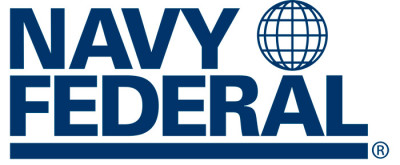
Navy Federal extends another proprietary loan option called Homebuyers Choice, tailored for nonmilitary borrowers who are eligible for credit union membership (including civilian employees of the Department of Defense).
Pros and cons

Wells Fargo provides various small-business loans, including secured and unsecured business lines of credit, commercial real estate purchase and refinancing loans, commercial real estate equity loans, lines of credit, and health care practice financing.
Pros and cons

HSBC offers personal, premier, car, home improvement, and debt consolidation loans with competitive rates and exclusive premier benefits.
Pros and cons

M&S Bank presents a diverse range of loans that offer flexibility in both borrowing amounts and repayment periods, featuring representative APRs.
Pros and cons
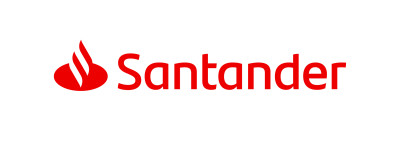
Santander offers various loans for personal needs, cars, home improvements, consolidating debts, and special occasions.
Pros and cons
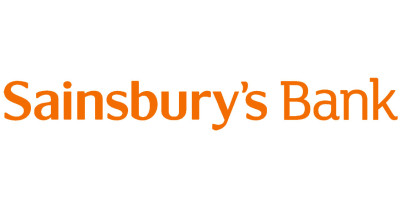
Sainsbury's Bank, a subsidiary of the esteemed UK supermarket, offers a diverse range of financial services, including loans, credit cards, insurance, and savings accounts, with a focus on customer convenience and competitive solutions.
Pros and cons
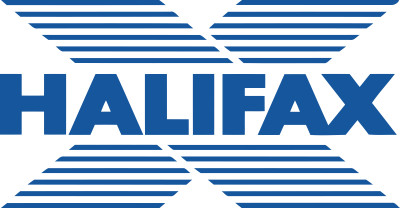
Halifax's personal loans are tailored for various purposes, such as major purchases or consolidating debts, without the requirement of collateral.
Pros and cons
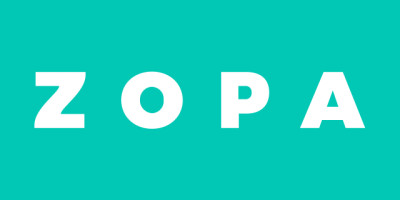
Zopa Bank, renowned for its tech-savvy approach combined with financial acumen, is committed to offering simple, transparent, and customer-focused financial products.
Pros and cons
Comprehensive Guide to Home Loans
Buying a home is a huge trial for most of us, especially when applying for a mortgage. If you are overwhelmed, do not worry — you are not alone and that happens to be the guide at taking you through everything you need to know about home loans from introduction down to selecting the right one that fits your needs. Whether it's your first time buying or otherwise, there is a lot of enlightenment to your options as detailed.
Understanding Home Loans
A financial support given to the borrower by the lender for the acquisition of property, majorly real estate, follows the repayment of the amount with added interest over an agreed period. These loans come in many forms, such as renovation loans, equity release loans, or foundation home loans. Understanding the basics will be the first step to navigating the application process with lots of confidence.
How Home Loans Work
These loans work by allowing the individual to pay back an amount borrowed in addition to the accruing interest over a designated period. The loan is secured against the property; meaning that if the borrower defaults on a loan, a lender can sell a home to recover the funds. Lenders can use home loan calculators to help potential borrowers understand their monthly repayments and total interest cost, thus making the process of financial planning easier.
Types of Home Loans
It will help identify which one of these types of loans would be best according to the financial situation and goals. Here are the most common types of loans provided in the UK:
| Type of Loan | Description |
| Fixed-Rate Home Loan | A stable rate of interest is provided on fixed-rate loans during the whole term of the loan. This usually suits people who want stability with their finances and do not want the anxiety brought about with interest rate fluctuations. |
| Variable-Rate Home Loan | Interest rates vary according to market conditions. These loans usually start with a lower initial rate but can vary over time, bringing with them potential savings or risks related to economic fluctuations. |
| Offset Mortgages | Link your mortgage to your savings account—this reduces the interest that is to be paid on the loan. This is good for people with substantial savings. |
| Interest-Only Home Loan | This type of loan allows one to pay only its interest for a certain number of years, usually five to ten years. Afterward, one must start to pay its principal and interest. |
| Tracker Mortgages | Your interest rate will be the Bank of England's base rate, plus a fixed percentage. Interest rate drops when the base rate goes down. |
| Home Equity Loan | These loans enable homeowners to borrow against their properties' equity. With fixed interest rates and predictable repayment terms, this type of loan is used for large expenses like renovations or debt consolidation. |
| Home Improvement Loan | A loan to finance the renovations and upgrades made to property. These can be either secured, with lower interest rates, or unsecured. The projects can vary from kitchen or bathroom remodels to energy-efficient upgrades. |
| Buy-to-Let Mortgages | This is a mortgage for the purpose of buying to let. The deposit is bigger, and the interest rate is higher because this has to be considered against the rental income. |
| Loan for First-Time Home Buyers | Those who are looking for a home for the first time, usually designed to have excellent terms, like low-interest rates and small deposits, and some government incentives. |
Once you understand the kinds of home loans, you can make an informed decision that you think will suit you, your financial needs, and further planning that you may undertake in the future. And with the help of instruments like a loan comparison tool or home loan eligibility calculator, the process becomes even easier.
Features and Benefits of Home Loans
Recognizing features and benefits of different loans can help you identify what suits your needs best. Let's take a look at the following key points that can significantly impact your financial well-being.
Interest Rates and Terms
Interest rates for loans are not the same from one lender to another. Some loans might provide attractive interest rates because of your credit standing or the type of loan. Fixed-rate loans offer predictable payments and force you to save money, which may be attractive if you want to ensure your budgeting is easy. Variable-rate home loans may offer a better starting rate compared to fixed-rate loans. However, the potential savings and pitfalls are brought by the increase in interest rates.
Loan Repayment Options
You will have a wide variety of options once you take your loan. These options include but are not limited to the type of loan repayments—standard principal and interest repayments, interest-only repayments over an agreed period, or offset accounts. A home loan repayment calculator will help you understand the best repayment option for you under your current financial circumstances and future objectives.
Quick Approval and Flexible Terms
The majority of lenders can easily afford to offer fast approvals and flexible terms, as they understand that borrowers face different and unique financial needs. This makes home loans accessible to an even larger group of applicants through quick approval together with flexible terms.
Choosing the Right Home Loan
Choosing the right loan is an important decision as it will determine your well-being for the coming many years. Here is how to make sure that your choice is perfect.
Assessing Your Needs
There is a need to assess your financial situation, your income, expenditures, and your future goals. Decide if you need a loan for your home renovation project or merely a standard mortgage. We propose exploring government schemes and programs for first-time buyers. For example, you can find useful options like the shared-ownership program on Gov.uk.
Compare Lenders and Offers
It is always important to compare multiple lenders and their offers. Look at interest rates, fees, and how flexible the terms of repayment are. For example, take the home loan comparison tool. It's like a bypass that allows you to browse the best options at home.
Read the Fine Print
Always read the terms and conditions section of the loan agreement. Also, don't forget to read the fee and penalty details, and remember the conditions mentioned in the same. You should know what happens in case of late payments and the refinance process in case you need to do it. You should know in detail to avert stress in times to come. Attention to the details now will avert a headache later.
Applying for a Home Loan
Even if applying for a loan seems a very daunting task in the beginning, it can be easily manageable if you are well-prepared and fully informed of all the requirements in advance. Here is the basic eligibility criteria and required documentation to avail a home loan, followed by a step-by-step application process.
Eligibility and Documentation
There are some eligibility criteria that you need to meet and necessary pieces of documentation that have to be in place so that you apply for a loan. Let's delve into the specifics:
Eligibility Criteria Description
| Eligibility Criteria | Description |
| Credit Score | You need to have a good credit score, which will prove your creditworthiness. |
| Income | You need to prove a stable income to assure that the loan can be repaid. |
| Employment History | A steady employment record adds to your credibility. |
| Deposit | Deposit is usually at least 5-20% of the property value. |
| Debt-to-Income Ratio | Lenders check the debt-to-income ratio to ensure that you can manage additional debt. |
Required Documentation
Proof of Income:
- Recent pay stubs
- Tax returns from the last two years
- Bank statements showing regular income deposits
Employment Verification:
- Letter from your employer
- Employment contract (if applicable)
- Contact details for employment verification
Identification:
- Valid passport or driving license
- Social Security number or National Insurance number
Financial Statements:
- Bank statements
- Details of any existing debts (credit cards, other loans)
Property Information (if you've identified a property):
- Sale agreement
- Property appraisal (usually arranged by the lender)
- Proof of deposit (bank statement showing the deposit amount)
Step-by-Step Application Process
Applying for a loan is complicated, but if you understand what each step entails, organizing everything becomes much easier. Our team suggests a structured approach toward each step to guide you through the process with greater simplicity and confidence. Here are the essential steps you need to follow to eventually secure a loan:
- Pre-Approval: Seek pre-approval from a lender to gauge your borrowing capacity. This process includes a credit check and offers you a budget range.
- Documentation: Collect all paperwork required.
- Type of Loan: Decide whether you want a fixed-rate home loan or a variable-rate loan.
- Application: Complete a loan application providing your personal, financial, and property details.
- Property Appraisal: Lenders will give a professional appraisal to learn more about the property value; this information is key to determine the value of the loan.
- Underwriting: In this step, your financial situation and the eligibility of your property will be reviewed. You accept the terms of sharing additional documents in case you are to be eligible for the loan.
- Approval of Loan: If your loan is approved, the lender will put forth an official paper with the loan agreement. We recommend reviewing the terms carefully, considering factors like the home loan interest rates and the repayment period.
- Loan Documents Signing: Accept and sign the loan documents, including those for the mortgage agreement. Ensure you go through all the terms before signing the same.
- Closing the Loan: Draw the process and take the funds and the property. Complete the payment of the closing costs and the last formalities.
By following these steps, you can navigate the loan application process efficiently. You can also use the home loan EMI calculator to know exactly how much you work out to pay each month and budget effectively.
Managing Your Home Loan
Managing your loan effectively is very important. This would help you to stay financially strong and assure that you are remaining competent in repaying the loan. Below are a few useful tips to manage your home loan—from making timely payments to refinancing.
Making Timely Payments
- Set Up Automatic Payments: Set up an automatic payment option from your bank account to ensure that you never miss a due date. It works like a safety net for your finances.
- Budget Accordingly: Use a home loan repayment calculator to have a clear idea of your monthly obligation, and then you'll plan your budget in accordance. It will help keep your finances in line.
- Monitor Payment Schedule: Monitor your schedule well and be aware of any changes in the interest rate if you are to pay under a variable interest rate. In this way, you would keep abreast of your payables and avoid late fees, leaving you with good credit and a smooth financial journey.
Refinancing Your Home Loan
Refinancing may be a good idea in order to save on interest or reduce the monthly payment. It's almost like you're hitting the reset button on your finances. Use a home loan refinance calculator to see if it makes sense. Refinance calculators are available online.
Handling Financial Difficulties
Financial hiccups are bound to happen. Here's what to do:
- Communication with Your Lender: If you find monetary hardship, kindly reach out to your lender. They may have remedies to assist you.
- Loan Modifications: Look at loan modifications that can adjust your loan terms, making payments more convenient.
- Refinance Home Loan: You can refinance the loan to take advantage of the reduced interest rates or friendlier terms.
- Seek Professional Advice: You need to visit a financial advisor who will look at the options at your disposal. He or she can guide you on the most viable option: whether it's refinancing a home equity loan or modifying your interest rates.
With this in mind, the loan can be managed well and keeps your financial status healthy. To have an idea of how to manage payments and refinance options, consider reviewing additional resources such as The Money Advice Service.
Pros and cons
Pros
- Variety of loan options (fixed rate, variable rate, home improvement loans, etc.)
- Potential tax benefits on interest payments
- Access to better properties through financing
- Flexible repayment options (principal + interest, interest-only, offset accounts)
Cons
- Long-term financial commitment (15-30 years)
- Risk of foreclosure if payments are missed
- Additional expenses (property taxes, maintenance, insurance)
- High interest payments over the loan term
Frequently Asked Questions About Home Loans
What is a home loan?
This loan is money borrowed to purchase a house. A home loan is a financial product secured by the home, requiring the borrower to repay the principal amount with interest over a specified period.
What is the difference between a fixed-rate and a variable-rate home loan?
A fixed-rate loan means a constant rate of interest throughout the tenure of your loan. At the same time, in a variable rate of interest, the interest on the loan is dependent on market conditions.
What is the maximum amount I can borrow for a home loan?
The maximum amount can be calculated depending on the income, credit score, and the property being financed, using home loan calculators to estimate this amount.
What are the standard interest rates for home loans?
Different interest rates apply to different home loans. It depends on the current lenders, the type of loan, and the credit profile of the borrower. Always make comparisons online to get the best deal on your interest rates.
What are the requirements to qualify for a home loan?
You usually need a good credit score, stable income, and a good lump sum. For specific loans, such as VA home loans, there are special eligibility conditions.
What documents do I need to apply for a home loan?
Proof of income, employment history, credit report, identification documents. Some loans may require further documentation.
How long does the home loan approval process take?
Anything between a number of days and several weeks, depending on the lender and complexity of the application.
Can I get a home loan with bad credit?
Yes, you can, but you may need to pay higher interest rates and experience lower repayment terms. Some banks and lenders, specializing in bad credit home loans, offer such options.
What is an EMI in home loans?
EMI stands for Equated Monthly Installment, which is the fixed payment amount you pay each month towards your loan.
Can I prepay my home loan?
Most of the lenders do allow prepayment; however, there may be some penalties. Check out your loan agreement and look for the specific terms related to the prepayment process.
What happens if I miss a home loan payment?
You will get hit by penalties, higher interest rates, and probably foreclosure. It’s crucial to communicate with your lender if you foresee payment issues.
What is refinancing a home loan?
Refinancing a loan, basically, is the replacement of your existing mortgage with a new one. And the new one is generally taken out at a lower interest rate than the current loan.
How can I find the best home loan rates?
Obtain offers from a number of lenders and compare them—many online platforms offer loan comparison tools.
What is a home equity loan?
These loans, known as home equity loans, are secured against the equity in your home. They are generally taken for large amounts, such as for repairing and renovating homes.
Can I use a home loan for renovation purposes?
Yes, there are certain types of loans designed specifically for home renovations, such as home improvement loans and renovation loans.